Table of Contents
No, black pepper does not contain capsaicin. This is the direct answer to the most common question about black pepper and heat compounds. Below we explain the science behind this fact and how black pepper's unique properties differ from chili peppers.
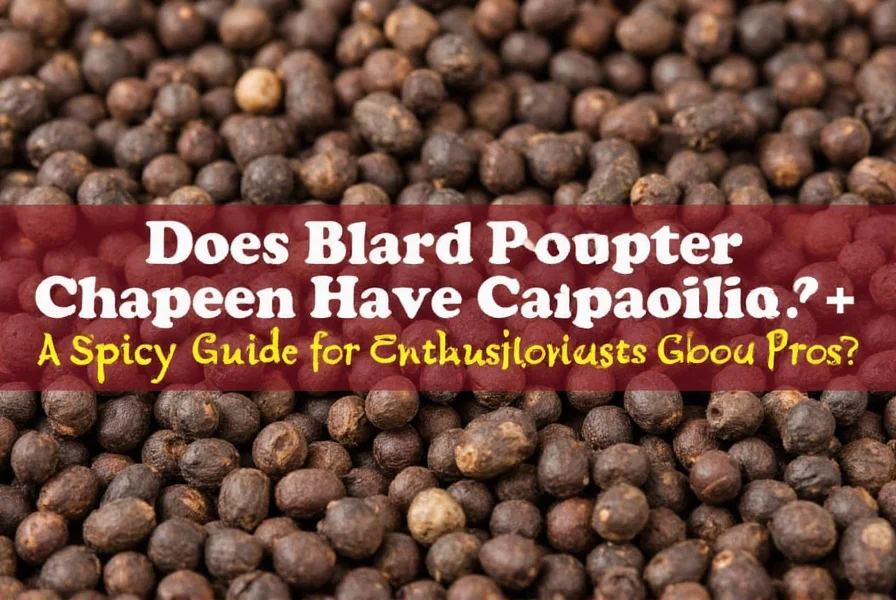
What Is Capsaicin?
Capsaicin is the compound responsible for the heat in chili peppers. It's an alkaloid found in the fruit of plants from the genus Capsicum, which includes bell peppers, jalapeños, habaneros, and more. When you eat something spicy, capsaicin binds to the TRPV1 receptors on your tongue, sending signals to your brain that you're experiencing heat or pain. This is why spicy foods can feel so intense and why some people love the burning sensation while others avoid it.
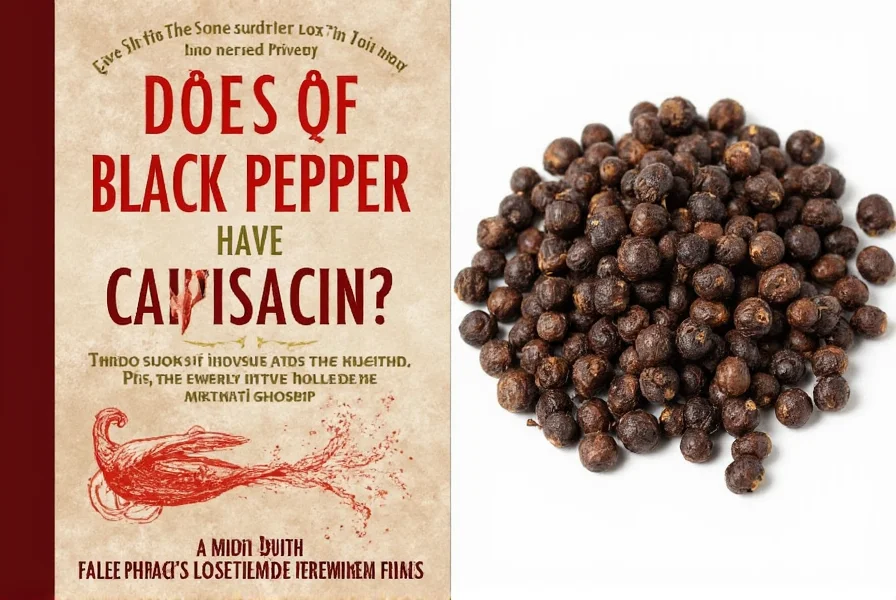
Black Pepper Chemistry: Does It Contain Capsaicin?
Black pepper (Piper nigrum) is one of the most widely used spices in the world. It's derived from the dried unripe berries of the pepper plant. While it adds a sharp, peppery flavor to dishes, it does not contain capsaicin. Instead, black pepper contains piperine, a compound that gives it its characteristic heat and contributes to its digestive benefits.
So, why do some people think black pepper has capsaicin? It could be because both black pepper and chili peppers produce a similar kind of heat—just from different chemical sources. Piperine may not cause the same intense burn as capsaicin, but it still delivers a noticeable kick, especially when freshly ground.
Here's a quick summary:
- Capsaicin: Found in chili peppers, causes a burning sensation.
- Piperine: Found in black pepper, provides a sharp, peppery heat.
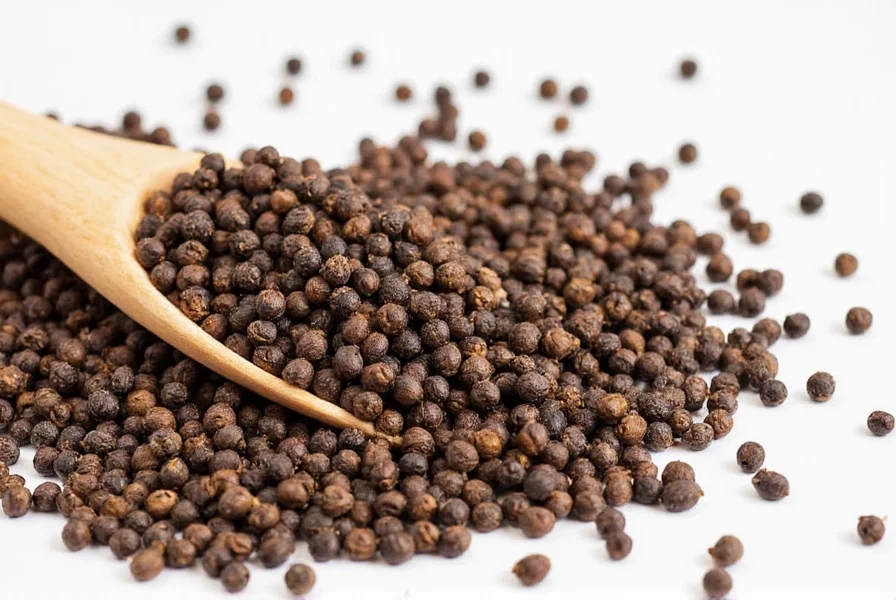
Comparison Table: Black Pepper vs. Chili Peppers
| Feature | Black Pepper | Chili Peppers |
|---|---|---|
| Origin | Tropical regions, primarily India and Southeast Asia | Mexico, Central America, South America |
| Main Heat Compound | Piperine | Capsaicin |
| Heat Level (on Scoville Scale) | Low to medium (no official scale) | Varies from mild to extremely hot |
| Flavor Profile | Sharp, pungent, slightly sweet | Spicy, sometimes fruity or smoky |
| Common Uses | Seasoning meats, soups, sauces | Hot sauces, curries, salsas |
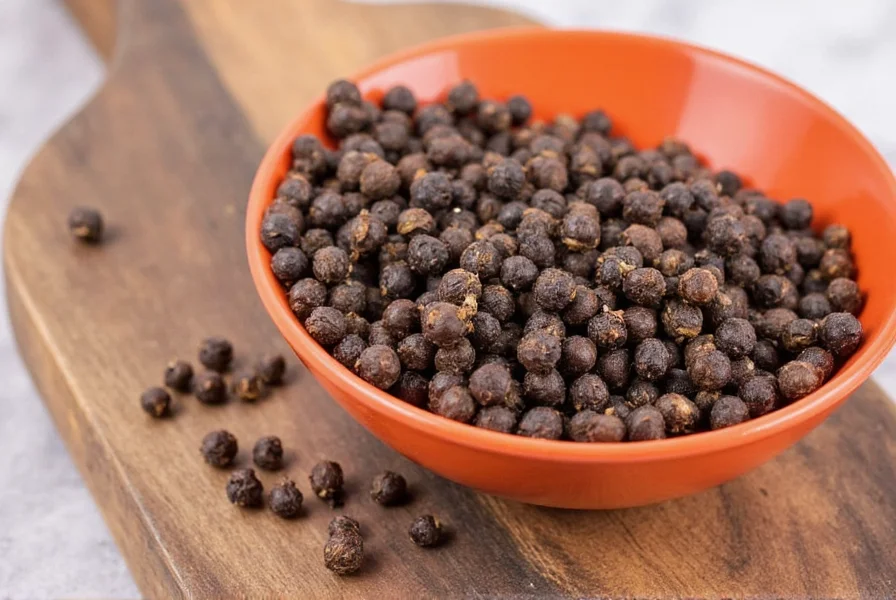
Spice Tips for Everyday Use
Whether you're a seasoned chef or just starting out with spices, knowing how to use black pepper properly can elevate your cooking. Here are a few practical tips:
- Grind Fresh: Buy whole peppercorns and grind them yourself for maximum flavor and potency.
- Add at the End: Black pepper works best when added near the end of cooking to preserve its aromatic compounds.
- Pair Wisely: Combine black pepper with other spices like garlic, cumin, or paprika for balanced flavors.
- Use in Moderation: A little goes a long way. Overuse can make dishes too harsh or bitter.

Buying Guide: Choosing the Best Black Pepper
Not all black pepper is created equal. Here's a guide to help you choose the right one for your needs:
Types of Black Pepper
- Whole Black Peppercorns: Ideal for grinding at home. Look for uniform size and a strong aroma.
- Ground Black Pepper: Convenient but loses potency quickly. Choose airtight packaging and store in a cool, dark place.
- White Pepper: Made from fully ripe berries, it has a milder flavor and is often used in white sauces and light-colored dishes.
Top Products for Black Pepper
1. Saffron Road Whole Black Peppercorns
- Features: High-quality, hand-selected peppercorns from India.
- Advantages: Strong aroma, great for grinding at home.
- Use Cases: Cooking, seasoning, baking.
- Target Audience: Home cooks and professional chefs.
- Suitable Occasions: Everyday meals, special occasions, gourmet cooking.
2. McCormick Ground Black Pepper
- Features: Classic, affordable, and widely available.
- Advantages: Consistent quality, easy to find.
- Use Cases: Everyday cooking, seasoning meats and vegetables.
- Target Audience: Budget-conscious consumers.
- Suitable Occasions: Family dinners, casual meals.
3. Kitchen & Love Black Pepper Grinder
- Features: A stylish, durable pepper mill with adjustable grind settings.
- Advantages: Keeps peppercorns fresh and allows for custom grinding.
- Use Cases: Enhancing the flavor of meals at the table.
- Target Audience: Gourmet enthusiasts and food lovers.
- Suitable Occasions: Dinnertime, gatherings, and fine dining.
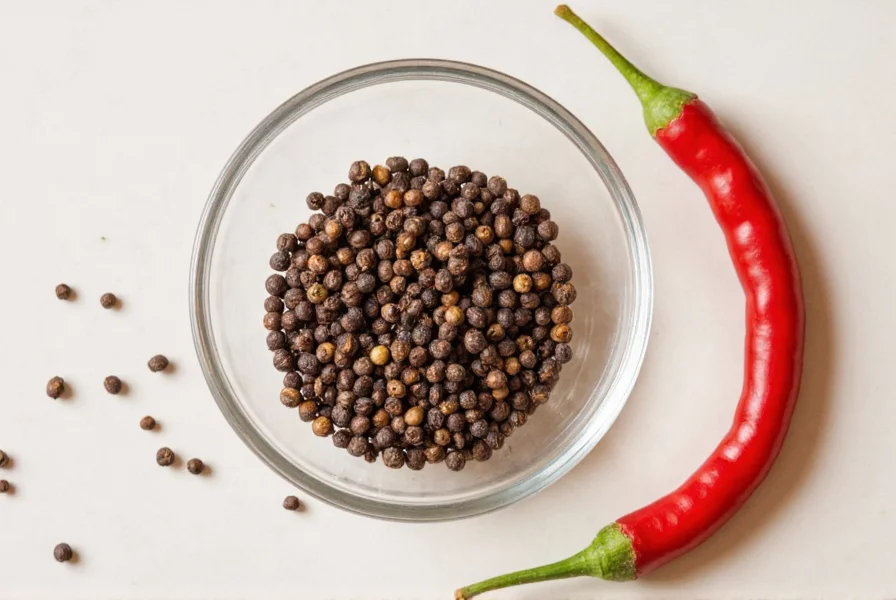
Frequently Asked Questions
Does black pepper contain capsaicin?
No, black pepper does not contain capsaicin. Its heat comes from a compound called piperine, which is chemically distinct from capsaicin found in chili peppers.
Why does black pepper feel spicy if it doesn't have capsaicin?
Black pepper's spiciness comes from piperine, which stimulates the same heat-sensitive receptors (TRPV1) as capsaicin, but produces a sharper, less intense sensation without the burning effect.
Is piperine as hot as capsaicin?
No. Piperine's heat is significantly milder than capsaicin. On the Scoville scale, black pepper registers minimal heat units compared to even mild chili peppers like banana peppers.
Can I substitute black pepper for chili peppers in recipes?
Only if you want subtle heat without the characteristic chili flavor. They provide different types of spiciness—black pepper adds sharpness while chili peppers deliver fiery heat and fruitiness.
Are there health differences between piperine and capsaicin?
Yes. Piperine enhances nutrient absorption (like curcumin) and aids digestion, while capsaicin boosts metabolism and may relieve pain. Neither compound is present in the other's source.
Conclusion
In short, black pepper does not have capsaicin, but it has its own unique compound—piperine—that gives it a distinct, sharp heat. Understanding the difference between capsaicin and piperine helps you appreciate the full range of flavors and effects that spices can bring to your kitchen. Whether you're experimenting with new recipes or simply looking to enhance your favorite dishes, knowing your spices makes all the difference.
Next time you reach for a pinch of black pepper, remember: it may not be as fiery as a chili, but it's got its own kind of magic—and it's definitely worth exploring.
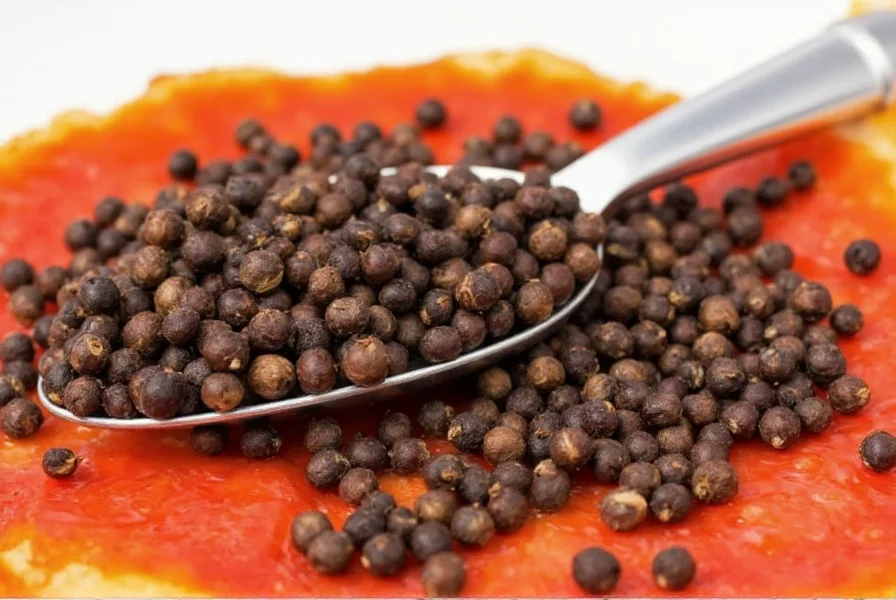

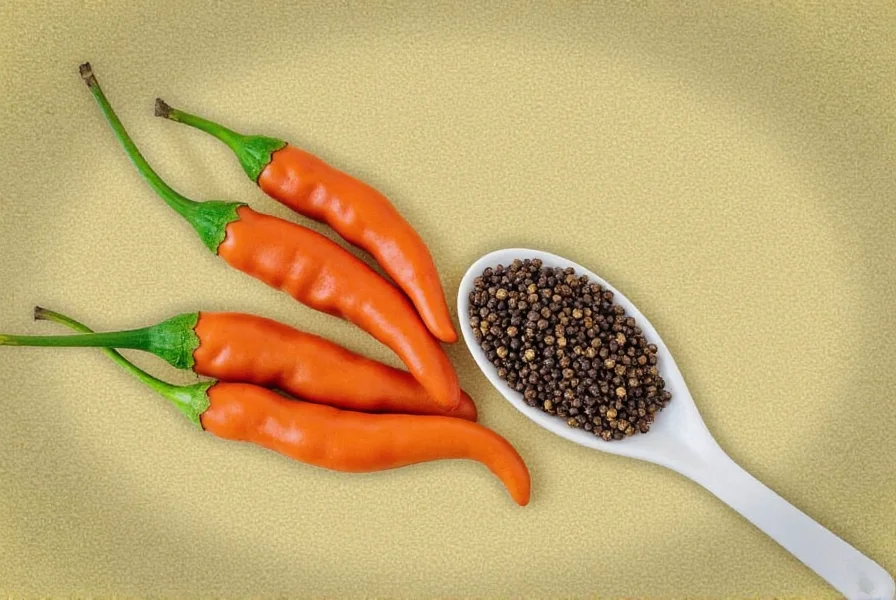









 浙公网安备
33010002000092号
浙公网安备
33010002000092号 浙B2-20120091-4
浙B2-20120091-4